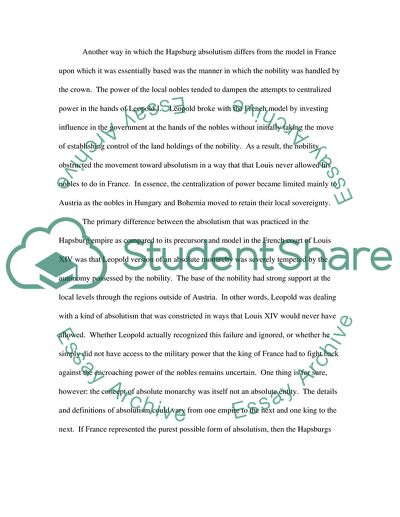Absolutism in the Hapsburg Empire Essay Example | Topics and Well Written Essays - 500 words. Retrieved from https://studentshare.org/miscellaneous/1550283-absolutism-in-the-hapsburg-empire
Absolutism in the Hapsburg Empire Essay Example | Topics and Well Written Essays - 500 Words. https://studentshare.org/miscellaneous/1550283-absolutism-in-the-hapsburg-empire.


